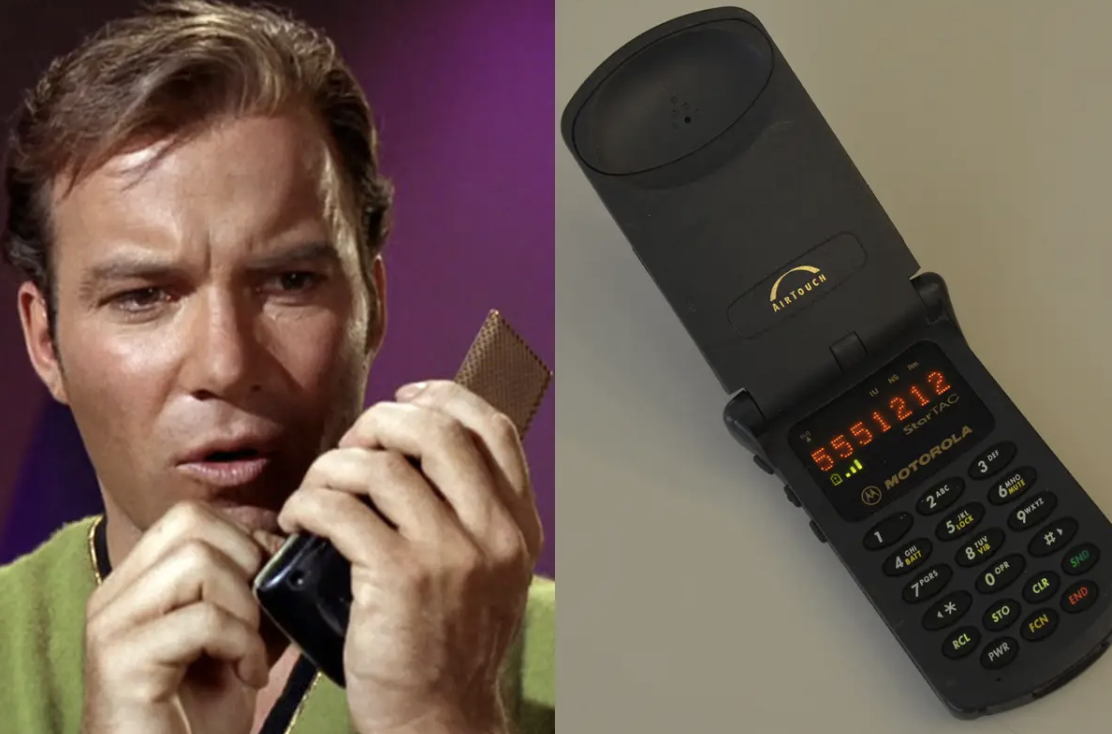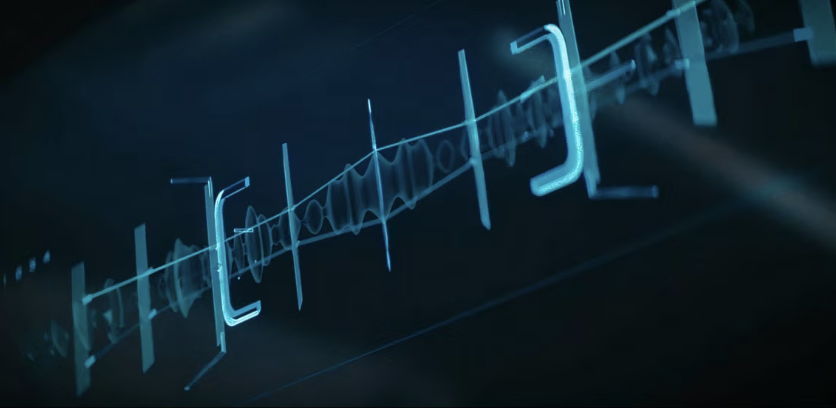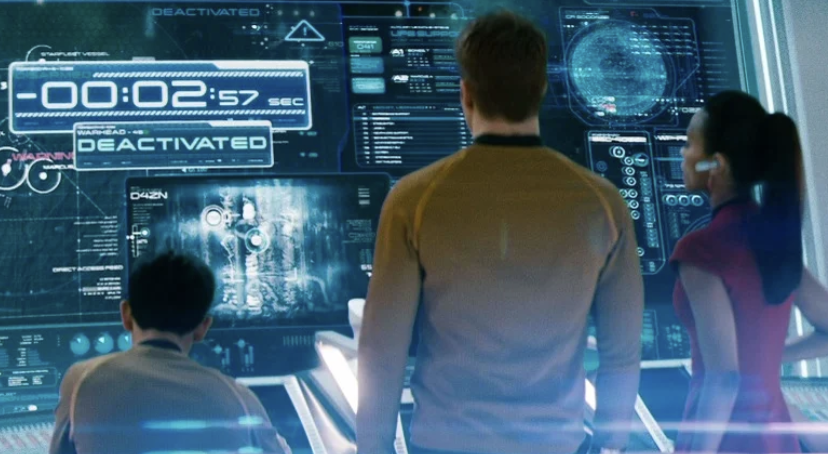When I was a kid growing up in the late '80s and early '90s, Star Trek rewired my brain. Afternoons were spent sprawled on the living room carpet, watching Captain Picard command the magnificent USS Enterprise-D, arguing with my friends over whether Sisko was a better leader than Janeway (he wasn't - Janeway was obviously better, but I let them be wrong), and dreaming about having a holodeck in the garage. Back then, all that tech felt like pure magic.

I still remember catching it on a news segment that the guy who invented the first real mobile phone, Martin Cooper, got the idea after watching Captain Kirk flip open his communicator (TIME). Their PADD devices? Basically iPads decades before anyone imagined swiping through apps (Scientific American). And somehow, modern tablets still have worse battery life than a 90s Game Boy.
The genius of Star Trek was making technology feel practical, not just flashy. Communicators? Smartphones. Tricorders? MRI scanners. Universal translators? We're close - though if you've ever tried ordering dinner abroad with a translation app, you know we're still a few warp jumps short. And food replicators? Not yet. 3D printers are trying, but right now they're still more "arts and crafts" than "instant Pequod's pizza" (IYKYK). Scientists at NUS Singapore even "teleported" lemonade by capturing and transmitting its flavor to a remote glass of water - a project detailed at the Eleventh International Conference on Tangible, Embedded, and Embodied Interaction and later covered by CNET. Not quite dinner on demand, but we're inching there.

"We have a machine that thinks and feels and dreams, and it's not property. It is a person." - Captain Jean-Luc Picard, Star Trek: The Next Generation(Season 2, Episode 9, "The Measure of a Man")
Captain Picard was ahead of his time. Star Trek showed what technology could be when it was built to help people, not replace them. That balance between excitement and caution about tech still hits today. Are we building helpful assistants... or setting ourselves up for Skynet? (Something I've been warning Apolo CEO Bill Kleyman about for over 20 years. Seriously, ask him!)
Or worse, a HAL 9000 from 2001: A Space Odyssey (1968). Nobody wants their "helpful" AI locking the pod bay doors and deciding you are expendable...isn't that right...Dave?
Thankfully, it feels like we are steering closer to Starfleet than Terminator.
AI today is doing way more than just giving you a better playlist. It is helping doctors catch cancer earlier by spotting things even trained pros can miss (Harvard Health). It is making cars smarter by reacting to sudden stops faster than you ever could (MIT Technology Review). It is giving pilots better flight paths by predicting turbulence before it happens (NASA).
And yeah, it is even making your grocery list smarter. Like reminding you to grab the Flamin' Hot Cheetos your wife specifically asked for (because if I show up empty-handed, I am definitely getting red-shirt assigned to a dangerous away mission. We all know how those end).
This is not sci-fi anymore. This is real stuff solving real problems.
Star Trek got it right. The best tech does not replace humanity. It makes humanity better.
And thankfully, none of today's AI tools have tried to "accidentally" vent the crew into space. Yet. (Unlike in Star Trek: Voyager, where the EMH Doctor once took control of the ship and nearly spaced everyone during "Message in a Bottle." Yes, I know, I know, I have an unhealthy amount of Star Trek trivia rattling around in my brain.)
But getting it right takes work. It does not happen automatically.
Star Trek made it clear decades ago: the future belongs to the people who design tech with ethics and responsibility first.
Data (and Zora) Coming to a House Near You
Data was my guy growing up. He was hands down the best-written character in the entire series (and franchise), brought to life by the only actor who could have nailed the role with that mix of precision, heart, and awkwardness. Fast forward to today, now we have Tesla's Optimus robot. Elon Musk straight up said they want Optimus to be like Data (IEEE Spectrum). Cool idea, but let's be real. We are nowhere close. Optimus can barely walk without a handler nearby.
Meanwhile, Tesla's got bigger problems - production issues, lawsuits, and a stock price wobbling like a drunk Ferengi at the Festival on Omicron Ceti III (yes, another deep Trek cut - I know, I know, I'll stop... probably). Might want to think twice before betting your latinum on that one. (I know I just said I'd stop, but for real, this time I'm 100% done. Just like a Vulcan at an open mic night! Okay, I'm sorry. I'll stop. I have a problem, I know.)

Still, the dream is alive. If you've been watching Star Trek: Discovery(seriously, go watch it - it is ridiculously good), you know it goes deeper. Zora, the sentient ship AI, showed a future where AI evolves empathy and loyalty. We're not there yet, but the fact we're even asking shows how sci-fi keeps pulling science forward.
AI like ChatGPT and Alexa are already doing the heavy lifting in ways most people don't even realize. Drafting emails. Summarizing meetings. Creating lesson plans. Troubleshooting faster than you can even Google "why is my WiFi broken." Siri (Apple, do better) is technically trying her best somewhere in the background.
But just like with Data, the goal isn't to build machines that just spit out facts or tell you what the capital of Albania is. It's about building tech that actually matters. Tech that gives you your time back. Tech that clears your head so you can think bigger. Build bigger. Solve real problems instead of drowning in checklists.
That is what Star Trek always understood. Technology is supposed to lift humanity, not just automate it.

And if we get it right? We are not just making cool tools. We are building a future that is actually worth getting excited about.
That is the future we are building at Apolo.
Final Thoughts
The coolest thing about where AI is headed? It brings back that pure childhood wonder. The feeling you had watching Star Trek, imagining a future where anything was possible. It is natural to be nervous about new tech. But Star Trek taught us: curiosity beats fear.
At Apolo, that vision guides everything we do. We build AI tools to unlock creativity, boost productivity, and make life a little more like the future we grew up dreaming about. No replicators yet, but we are working on it. Seriously. Someone should get on that.
Maybe we are not building Skynet or HAL 9000. Maybe we are just setting the coordinates for a better future and punching it to warp speed.
As Captain Picard once said to Lieutenant Commander Data, "Make it so."
.svg)


